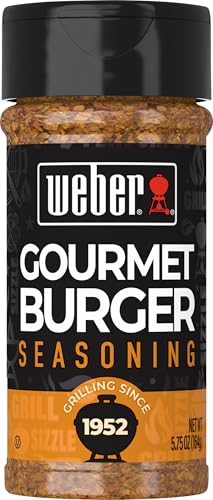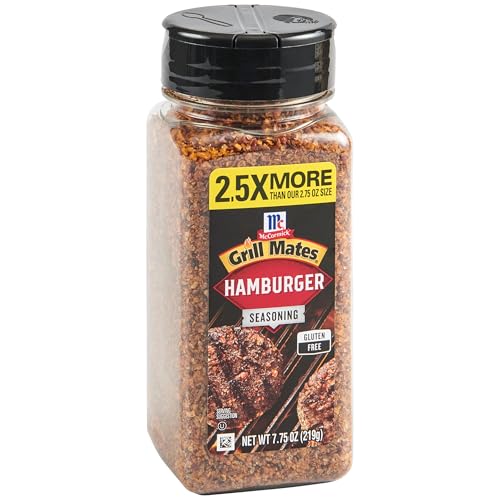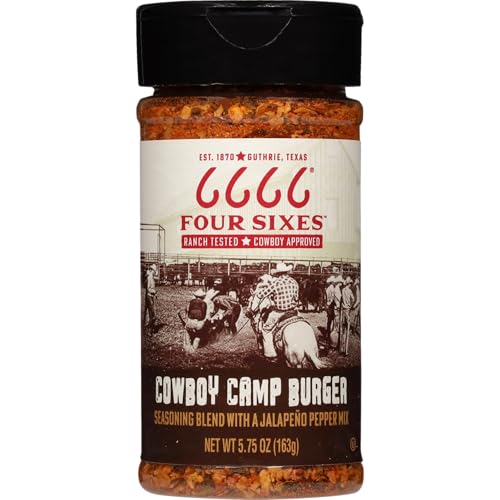Key Takeaways
- Nutritional Profiles: Veggie burgers generally contain less saturated fat and more fiber, while meat burgers provide higher protein, iron, and B vitamins.
- Health Benefits: Veggie burgers support digestive health and lower calorie intake, whereas meat burgers offer substantial protein, essential for energy and muscle health.
- Environmental Impact: Veggie burgers typically require fewer resources and produce significantly less greenhouse gas than meat burgers, making them a more sustainable choice.
- Consumer Trends: There is a growing trend towards plant-based diets, with many consumers opting for veggie burgers for health and environmental reasons, leading to diverse culinary options.
- Taste and Texture: Each burger type provides a unique culinary experience; veggie burgers offer distinct flavors from plant ingredients, while meat burgers deliver classic, savory tastes.
When it comes to burgers, the debate between veggie and meat options is sizzling hot. As someone who loves exploring different food choices, I’ve often found myself wondering which option packs the bigger nutrient punch. With plant-based diets gaining popularity, it’s crucial to dive into the nutritional differences and benefits of each.
Overview of Veggie Burgers and Meat
Veggie burgers and meat burgers offer unique flavors and textures that appeal to different preferences. Veggie burgers consist of various plant-based ingredients, such as beans, lentils, and grains, and often incorporate vegetables and spices for flavor. On the other hand, meat burgers primarily feature beef or other types of meat, providing a rich taste and satisfying texture.
Nutritionally, veggie burgers tend to be lower in calories and saturated fat compared to meat burgers. They usually contain more fiber and certain vitamins, thanks to the inclusion of whole ingredients. For instance, black bean burgers provide significant protein and fiber, while chickpea burgers contribute to nutritional variety.
Meat burgers, particularly those made from lean cuts, deliver ample protein, iron, and B vitamins. Grass-fed options contain higher levels of omega-3 fatty acids, potentially offering a slight health boost over conventional meat.
Ultimately, whether choosing a veggie burger or a meat burger, it’s essential to consider specific ingredients. Unique ingredients elevate the burger experience. For instance, adding avocado, unique spices, or specialty cheeses can enhance both veggie and meat burgers significantly. My passion for creating unique burgers keeps the exploration vibrant, embracing all the fresh and exciting possibilities.
Nutritional Profiles
Understanding the nutritional profiles of veggie and meat burgers is essential for creating delicious yet health-conscious options. Each type offers unique benefits, and knowing these can inspire my next burger creation.
Veggie Burgers: Key Nutrients
Veggie burgers showcase a variety of key nutrients. They’re typically low in calories and saturated fat, making them a great choice for a lighter meal. Here’s what you’ll find in a typical veggie burger:
- Protein: Usually contains 10-20 grams, sourced from beans, lentils, or nuts.
- Fiber: Often packed with 4-8 grams, promoting digestive health.
- Vitamins: Rich in vitamins A, C, and several B vitamins due to vegetable ingredients.
- Minerals: Contains essential minerals like potassium, magnesium, and iron.
These nutrients come together to create a satisfying and nutritious burger while boosting the flavors of ingredients like quinoa or black beans.
Meat: Key Nutrients
Meat burgers provide a robust nutritional profile, particularly when crafted with lean cuts. A standard beef burger typically includes:
- Protein: Delivers a substantial 20-30 grams, essential for muscle building and repair.
- Iron: Offers 2-3 milligrams, crucial for oxygen transport in the body.
- Zinc: Contains about 5 milligrams, supporting the immune system.
- B Vitamins: Abundant in B12 and B6, vital for energy conversion and brain health.
These nutrients enhance the flavor and texture, especially in grass-fed options. Exploring different meat cuts can introduce exciting tastes while maintaining nutritional integrity.
Crafting unique burgers means balancing these nutrients to create a delicious bite, whether through hearty veggie blends or flavorful meat combinations.
Health Benefits
Exploring the health benefits of veggie and meat burgers makes crafting incredible recipes even more exciting. Both options offer unique advantages that elevate the burger experience beyond taste.
Advantages of Veggie Burgers
Veggie burgers shine with their lighter profiles. They typically contain fewer calories and saturated fats, making them a great choice for anyone looking to reduce overall fat intake. High fiber content, usually around 4-8 grams per serving, promotes digestion and keeps me feeling full longer. Plus, veggie burgers pack a punch of vitamins and minerals. Ingredients like beans and lentils provide essential folate and potassium, which support heart health. With each bite, I enjoy the rich flavors of nutrients, including vitamins A and C, adding to the overall health benefits.
Advantages of Meat
Meat burgers hold their own with considerable nutritional advantages. A standard meat burger delivers 20-30 grams of protein, fueling my grilling sessions and providing energy throughout the day. It’s a fantastic source of iron, especially beneficial for maintaining energy levels. B vitamins, including B12, play crucial roles in brain health and metabolism, making meat burgers a worthy choice for their protein-packed profile. When choosing lean cuts or grass-fed options, I maximize these benefits while keeping the flavor rich and savory, ensuring my creations remain delicious and nutritious.
Environmental Impact
Exploring the environmental impact of veggie burgers versus meat burgers reveals interesting insights related to sustainability and resource consumption.
Resource Requirements
Creating a veggie burger often requires fewer resources than its meat counterpart. Plant-based ingredients generally use less water and land for production. For example, producing one pound of beef needs around 1,800 gallons of water, while growing a pound of soy can require only about 200 gallons. This difference leads to a more efficient use of land and water when crafting veggie burgers. I love experimenting with beans, lentils, and grains, which not only pack delicious flavors into my burgers but also minimize my ecological footprint.
Carbon Footprint
The carbon footprint associated with meat production is significantly higher than that of veggie alternatives. A study shows that red meat contributes about 10-15 times more greenhouse gases than plant-based foods. For instance, a serving of beef can emit around 3 kilograms of CO2 equivalents, while a plant-based burger might contribute less than 0.2 kilograms. When I’m grilling for friends and family, I prefer to showcase the vibrant flavors of veggie burgers, knowing they’re not just delicious but also kinder to our planet. Embracing these options allows me to create mouthwatering burgers without compromising sustainability.
Consumer Preferences
As a burger enthusiast, I love diving into the preferences that shape our choices between veggie and meat burgers. Both options have their fans, and understanding these trends adds an exciting layer to the burger experience.
Trends in Eating Habits
Today, more people embrace plant-based diets, seeking veggie burgers for health benefits and environmental reasons. Many love experimenting with different ingredients that fit their dietary choices, which results in creative flavor combinations. Also, several restaurants now offer gourmet veggie options alongside traditional meat burgers, catering to diverse taste buds. According to the latest surveys, 47% of consumers consider meat alternatives when dining out, reflecting a shift towards healthier eating habits. Burger lovers can count on this trend enriching their options and pushing culinary boundaries.
Taste and Texture Comparisons
Taste and texture play significant roles when deciding between veggie and meat burgers. As someone who’s crafted countless variations, I know that veggie burgers showcase unique flavors, thanks to ingredients like black beans, quinoa, or mushrooms. These ingredients lend depth and delicious textures, making for satisfying bites. Meat burgers, on the other hand, deliver that classic juicy experience, especially when using high-quality cuts or grass-fed beef.
Each type of burger offers its signature experience. When I grill, I love adding seasonings or toppings that highlight the natural flavors of either kind. Veggie burgers can have a smoky char with grilled chiles or a rich creaminess from avocado, while meat burgers shine with melted cheddar and crispy bacon. The key lies in finding ways to enhance each burger’s distinctive taste and texture, creating unforgettable meals for my friends and family.
Conclusion
Choosing between veggie burgers and meat burgers ultimately comes down to personal preference and dietary needs. I’ve found that both options bring something unique to the table. Veggie burgers offer a lighter, nutrient-packed experience while meat burgers deliver that classic hearty satisfaction.
As I continue exploring different flavors and textures, I appreciate how each type can be enhanced with various ingredients. Whether I’m enjoying a savory black bean burger or a juicy grass-fed beef patty, it’s all about finding what makes my taste buds happy. Plus, considering the environmental impact adds another layer to my decision-making.
No matter which burger I choose, I’m excited to keep experimenting and enjoying delicious meals that fit my lifestyle.





